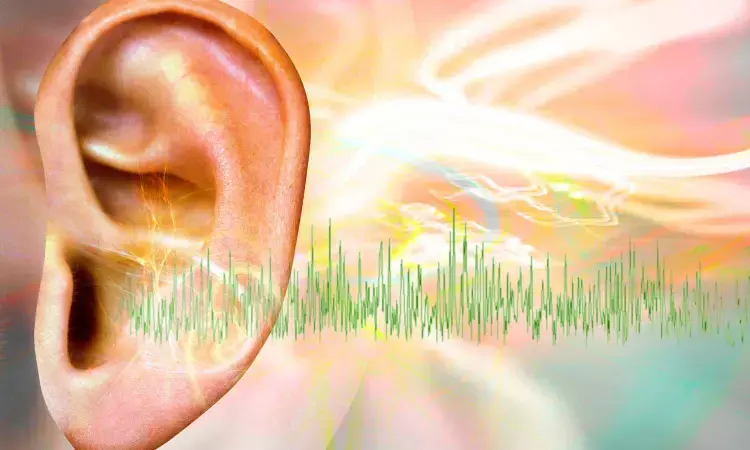- Home
- Medical news & Guidelines
- Anesthesiology
- Cardiology and CTVS
- Critical Care
- Dentistry
- Dermatology
- Diabetes and Endocrinology
- ENT
- Gastroenterology
- Medicine
- Nephrology
- Neurology
- Obstretics-Gynaecology
- Oncology
- Ophthalmology
- Orthopaedics
- Pediatrics-Neonatology
- Psychiatry
- Pulmonology
- Radiology
- Surgery
- Urology
- Laboratory Medicine
- Diet
- Nursing
- Paramedical
- Physiotherapy
- Health news
- Fact Check
- Bone Health Fact Check
- Brain Health Fact Check
- Cancer Related Fact Check
- Child Care Fact Check
- Dental and oral health fact check
- Diabetes and metabolic health fact check
- Diet and Nutrition Fact Check
- Eye and ENT Care Fact Check
- Fitness fact check
- Gut health fact check
- Heart health fact check
- Kidney health fact check
- Medical education fact check
- Men's health fact check
- Respiratory fact check
- Skin and hair care fact check
- Vaccine and Immunization fact check
- Women's health fact check
- AYUSH
- State News
- Andaman and Nicobar Islands
- Andhra Pradesh
- Arunachal Pradesh
- Assam
- Bihar
- Chandigarh
- Chattisgarh
- Dadra and Nagar Haveli
- Daman and Diu
- Delhi
- Goa
- Gujarat
- Haryana
- Himachal Pradesh
- Jammu & Kashmir
- Jharkhand
- Karnataka
- Kerala
- Ladakh
- Lakshadweep
- Madhya Pradesh
- Maharashtra
- Manipur
- Meghalaya
- Mizoram
- Nagaland
- Odisha
- Puducherry
- Punjab
- Rajasthan
- Sikkim
- Tamil Nadu
- Telangana
- Tripura
- Uttar Pradesh
- Uttrakhand
- West Bengal
- Medical Education
- Industry
Tinnitus and Dizziness Linked to Higher Risk of Chronic and Recurrent Headaches, Study Finds

Iran: A large-scale study involving more than 10,000 adults has found a strong link between tinnitus and an increased risk of both chronic and recurrent headaches.
The research, published in the Ear, Nose & Throat Journal by Dr. Mehdi Rezvani Amin from the Community Nursing Research Center at Zahedan University of Medical Sciences, Iran, and colleagues, emphasizes the need for coordinated ear, nose, throat (ENT), and neurological care to address overlapping symptoms and improve patient outcomes.
The study analyzed data from 10,016 adults aged 35 to 70 years as part of the Zahedan Adult Cohort Study in southeastern Iran. Participants provided self-reported information on tinnitus, dizziness, and headache symptoms. Those with severe mental or physical impairments were excluded. Using statistical models, the researchers assessed how tinnitus and dizziness were related to the likelihood of chronic or recurrent headaches, while accounting for demographic and medical factors such as hypertension, head trauma, and epilepsy.
The key findings of the study were as follows:
- Chronic headache was reported in 5.2% of participants, while 36.2% experienced recurrent headaches.
- The average age of participants was 50.4 years, and the mean age at the onset of chronic headache was 37.4 years.
- Women were 3.2 times more likely to develop chronic headaches and 2.5 times more likely to experience recurrent headaches compared to men.
- Tinnitus and dizziness were both significantly associated with a higher risk of chronic and recurrent headaches.
- Participants with tinnitus had greater odds of developing headaches, indicating a possible link between auditory or vestibular disturbances and pain pathways in the brain.
- Hypertension, previous head trauma, and epilepsy further increased the risk of both chronic and recurrent headaches, underscoring the influence of neurological and cardiovascular factors.
According to the researchers, the interaction between tinnitus, dizziness, and headache reflects a complex interplay of neurological and sensory systems. The overlap between these conditions may be driven by shared mechanisms involving central sensitization, autonomic dysfunction, or inner ear pathology. This emphasizes the importance of a multidisciplinary approach that combines ENT evaluation with neurological assessment and management.
The authors noted several limitations, such as reliance on self-reported data and the absence of detailed audiological testing. The study also did not evaluate the severity, duration, or frequency of tinnitus and dizziness, which could offer deeper insights into how these symptoms contribute to headache disorders.
The study demonstrated a clear association between tinnitus, dizziness, and the risk of chronic and recurrent headaches in adults. Factors such as gender, hypertension, and head trauma further influence this relationship.
The authors emphasized the need for integrated healthcare strategies that bridge ENT and neurology specialties, focusing on both clinical management and public awareness. They also recommended further research to uncover the biological mechanisms linking these conditions and to design interventions aimed at improving patients’ quality of life while reducing the overall burden on healthcare systems.
Reference:
Amin, M. R., Shahraki-Sanavi, F., Amin, M. R., Salar, A., Moghaddam, A. A., Mohammadi, M., & Sarhadi, Z. (2025). Prevalence of Tinnitus and Dizziness and Their Association With Recurrent and Chronic Headache in Adults. Ear, Nose & Throat Journal. https://doi.org/10.1177_01455613251382380
Dr Kamal Kant Kohli-MBBS, DTCD- a chest specialist with more than 30 years of practice and a flair for writing clinical articles, Dr Kamal Kant Kohli joined Medical Dialogues as a Chief Editor of Medical News. Besides writing articles, as an editor, he proofreads and verifies all the medical content published on Medical Dialogues including those coming from journals, studies,medical conferences,guidelines etc. Email: drkohli@medicaldialogues.in. Contact no. 011-43720751
Next Story


